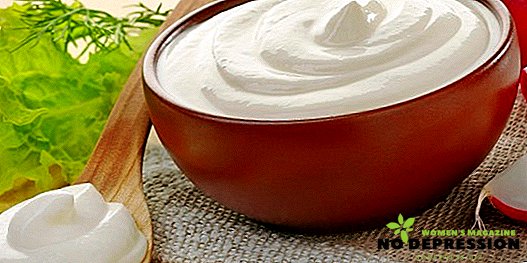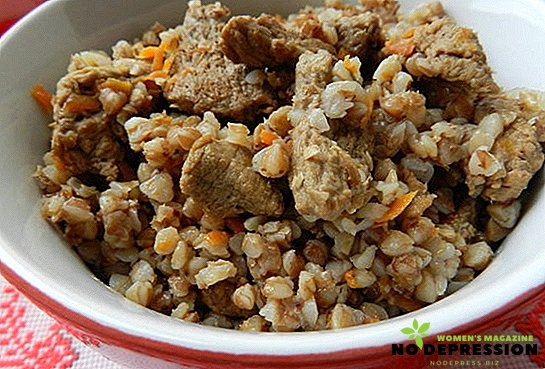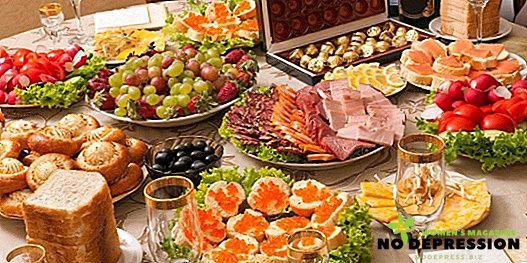Gluten is gluten, which is present in almost all foods. This substance can cause serious harm to the human body, so it is important to know which products contain gluten.
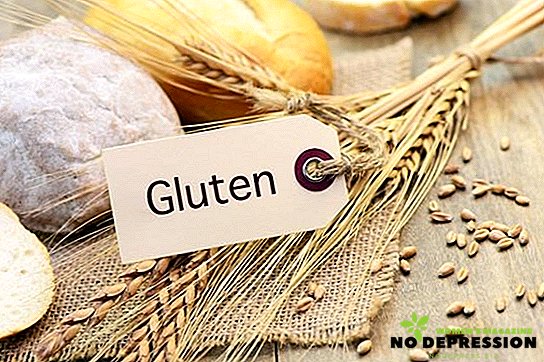
What is gluten
Gluten is a protein found in some grains and other foods. When dry, it has no color, smell, but when adding water it takes on a grayish tint and starts to look like glue. Because of its specific structure, this substance is called gluten.
Due to gluten, flour when mixed with water becomes elastic dough, sauces - thicker. So this substance brings undoubted benefit in the food industry.
However, it can cause serious harm to people who have an individual intolerance to this substance. But also to those who can boast of good health.
What foods contain gluten
In large quantities, this substance is contained in cereals: oats, rye, wheat. Its second name is wheat protein. Also a large amount of gluten is found in foods that are made from cereals.
Thus, people who have gluten intolerance should be excluded from the diet:
- cereal cereal;
- bran;
- bread and any pastries;
- pasta and spaghetti;
- dumplings and dumplings;
- flour sauces;
- beer, kvass, gin and other cereal-based drinks.
Also on sale are many products that contain the so-called latent gluten, which is added to impart density or uniformity. It can be recognized by such labels on labels as "modified food starch", "gluten", "hydrolyzed vegetable protein".
Most likely hidden gluten is contained in the following products:
 sauces and syrups;
sauces and syrups;- sausage;
- sausages;
- cutlets;
- crab sticks;
- chips;
- French fries;
- soy products;
- confectionery powders;
- prepared spice mixes;
- canned marinades with tomato paste;
- ready breakfasts;
- chocolate;
- coffee;
- flavored tea.
Also, traces of wheat protein can be found in yogurt, cornflakes, lemonade, squash or eggplant caviar, lard. At the same time there are a number of features. Despite the fact that butter is a gluten-free product, this substance can be added to cheap products in order to give it density.
Purchased dried fruits and candied fruits may also contain gluten. Home-made dairy products, for example, cream, cottage cheese, do not contain this substance, but it is definitely in industrial products. Also, this vegetable protein can be found in tablets, sports nutrition, vitamins, its small amount can be contained in almost any industrial product.
Even baby food, which is intended for children of the first year of life, will not be ideal, because it often contains gluten many times more than in adult food. For example, the usual buckwheat, rice and corn do not contain gluten, but the children's convenience food quick-cooking cereals are generously flavored with gluten.
One kilogram of dry powder of buckwheat porridge contains 239 mg of gluten, corn - 210 g, milk rice - 248 g.
Why is gluten harmful?
This substance is harmful to those who have individual protein intolerance. Celiac disease (gluten intolerance) is found in only 2% of people. However, adults and children who have signs of such intolerance, an order of magnitude more.
In humans, gluten is not completely absorbed, resulting in injury to the intestinal mucosa. Undigested vegetable protein damages beneficial intestinal microflora. Because of this, the number of harmful bacteria can grow, dysbacteriosis can appear. Celiac disease is largely a hereditary disease. If your parents or relatives have this pathology, over time it may appear with you.
Main symptoms of gluten intolerance
The inner walls of the intestine are covered with villi, contributing to the absorption of food and the absorption of vitamins and minerals. Under the action of gluten, the villi are smoothed, food slips along the intestinal walls, vitamins do not have enough time to digest themselves.
As a result, a person with intolerance to this protein worsens the work of the gastrointestinal tract, decreases immunity, and disrupts metabolism. The main symptom of gluten intolerance includes intestinal upset, such as diarrhea, bloating, stools, usually foamy, pale in color with a sharp unpleasant odor.
Celiac disease may also occur with other symptoms:
 weight loss;
weight loss;- dry skin;
- brittle nails;
- irritability and fatigue;
- pallor and puffiness;
- headaches and migraines;
- inflammation and pain in the joints of the arms and legs.
Also, people with gluten intolerance can change their mood for no reason, there is a feeling of inexplicable anxiety. And since the use of this protein leads to violations in the intestines, there may be a deficiency of vitamin A, fatty acids.
The outward sign of deficiency is hair keratosis, that is, "goose bumps" on the back of the hands.
Also test for gluten intolerance is worth those who suffer from the following diseases:
- autoimmune pathologies such as psoriasis, multiple sclerosis, arthritis, and so on.
- fibromyalgia, that is, pain in different parts of the body;
- infertility or polycystic ovaries;
- neurological disorders, such as dizziness.
Children who have gluten intolerance may have growth retardation, development, or body mass deficiency. In the first year of life, an allergy can manifest itself in the form of loose stools, insomnia, moods.
Is gluten harmful in the absence of celiac disease?
Many people believe that the use of gluten is contraindicated only to those who are hypersensitive to this substance. However, gluten can harm even a completely healthy person. To make sure that it is a gluten, conduct a simple experiment, for it you will need a piece of bread and a glass of water.
Mash the bread well, roll a ball out of it and rinse with water. An unpleasant pulping mass, which resembles a frozen paste, and is gluten.
Now imagine that this mass enters the stomach in large quantities. Enveloping all the food, gluten irritates the walls of the small intestine, slows down the process of digestion. However, gluten harms not only digestion - the brain and the nervous system are hit.
The study of this issue involved and the famous neuroscientist David Polmutter. In his practice, he wondered what caused the destruction of the brain activity of patients, and eventually found an obvious link between the consumption of gluten-containing foods and the state of health.
So, why you can not eat large amounts of gluten for those who are completely healthy:
- It provokes brain diseases. It is believed that the deterioration of brain activity is a sign of old age. There is a theory that with age, brain activity decreases. However, this is not entirely correct, since all these processes directly depend on what a person ate during his life. Constant nervous stress, chronic headaches, mood swings, which can be caused by gluten consumption, increase the risk of brain damage and aging of the whole organism.
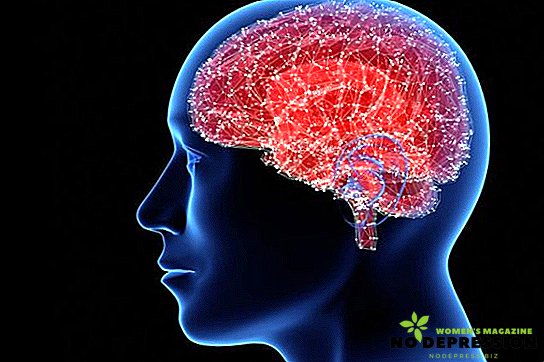
- Reduced immunity and improved conditions for the development of the disease. Gluten viscosity is detrimental to digestion and the absorption of vitamins, minerals. However, few people can make the right conclusion from this information: diarrhea, bloating, other eating disorders - this is only the tip of the iceberg. The body begins to respond to such food as foreign, activating the immune system. Killer cells attack not only food, but also damage the intestinal wall, which leads to increased intestinal permeability. As a result, an inflammatory reaction is triggered, which stimulates the release of cytokines, they damage brain tissue, which leads to the development of various ailments.
- Glutamine increases the risk of cancer, especially lymphoma and intestinal cancer. Many people who are sensitive to gluten are not aware of this. However, the effects of nutrition, which is enriched with gluten, are diagnosed daily: ulcers, autoimmune diseases. But the connection between malignant neoplasm and gluten has become a real discovery. According to a study by the American Medical Association, in a group of people who were not hypersensitive to gluten and consumed gluten with food, the risk of developing cancer increased by 30%.
- Gluten causes addiction and affects the nervous system. When ingested, gluten breaks down into polypeptides, they can penetrate the blood-brain barrier. There is binding to the receptors of the brain, stimulated by an artificial sensation of pleasure. In fact, this process is reminiscent of the effect of light drugs, for this reason, there is a dependence on food, and the rejection of sweets is perceived by the body as stress.
Diagnostic features
To determine whether you have celiac disease, for some time you need to abandon food that contain gluten. The minimum abstinence period is 2 weeks, but it is better not to use them for at least 20 days. It can take months to completely cleanse the body of gluten, so the longer you last, the more accurate the experiment will be.
After this period, eat a product with gluten and follow the reaction of the body. If there are any violations of the gastrointestinal tract, you must contact your gastroenterologist or allergist, who will prescribe an analysis and test for intolerance.
10 reasons to refuse gluten
Summarizing the data obtained in the course of medical research, it is possible to make a definite conclusion - gluten is harmful even to those who do not have hypersensitivity to this component. There are at least 10 reasons to refuse gluten-containing products in favor of the gluten-free diet:
- Even in the absence of celiac disease, the body reacts incorrectly to the intake of this protein.
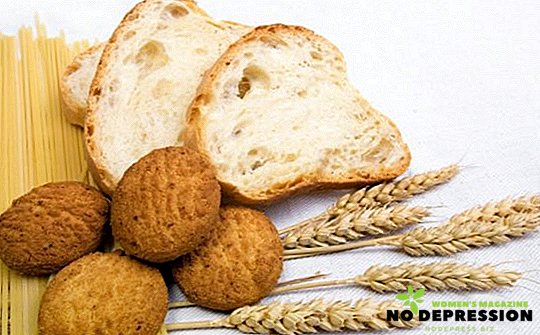
- Love for foods that contain gluten can cause metabolic disturbances, leading to overweight or underweight.
- Excessive gluten intake is one of the most significant causes of iron deficiency anemia.
- A gluten-free diet reduces the frequency of headache attacks.
- Gluten rejection is recommended for children with low levels of learning and developmental delay.
- Eating gluten leads to severe forms of cancer.
- The frequency of age-related abnormalities in the work of the brain depends largely on what we eat - the higher the consumption of gluteic foods, the higher the likelihood of mental degeneration in old age.
- The side effect of taking a number of drugs is similar to the reaction to excess gluten in the gastrointestinal tract.
- Food addiction is not a legend. Gluten is addictive just like nicotine, alcohol, narcotic drugs.
- Gluten-enriched diet - the cause of inflammatory processes in the body.
Thus, gluten, like poison, slowly destroys the brain, causes dependence and sooner or later kills.
How to live with intolerance?
If you have gluten intolerance, the only way to cure yourself is to completely give up gluten-containing food.
List of allowed products:
- fruits;
- vegetables;
- meat;
- a fish;
- buckwheat;
- seafood;
- homemade dairy products;
- eggs;
- mushrooms;
- nuts;
- berries;
- potatoes;
- beans and peas;
- soy flour;
- flax seeds.
In purchased products it is quite difficult to determine the presence of gluten. To find out if the substance is exactly in the composition, apply a drop of iodine on the food. If he turned black, then there is starch in the composition. Although it may be corn starch safe for people, it is desirable to refrain from consuming such products.
Keep in mind that if you are cooking food that contains wheat protein, select individual dishes for yourself. Even a microgram of gluten can cause a serious allergic reaction in a person with intolerance. Also, people with celiac disease should be excluded from the diet bananas, because they cause cross-allergy.
Currently, many products are available for people with intolerance to this substance. This is a special pastry, bread, pasta from buckwheat or rice groats. Due to this, you can easily find a replacement for your favorite and familiar food.


 sauces and syrups;
sauces and syrups; weight loss;
weight loss;

